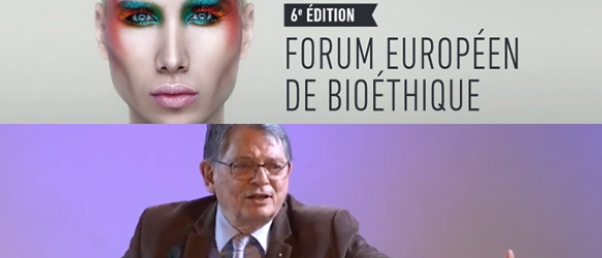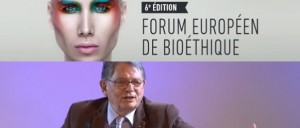JEAN FRANCOIS MATTEI: “DOES MEDICINE LEAD TO TRANSHUMANISM? »
Gènéthique informs you
When given the floor, during one of the last conferences of the European forum of bioethics, Jean-François Mattei, speaking on the theme “Does medicine lead to transhumanism?” starts off by saying that “medicine no longer leads to reparation but to augmentation”.
Though the mission of “our humanistic human medicine has always been to treat”, it has evolved through time. Jean-François Mattei speaks of a clear fracture. Determining. In 1946, the WHO came out with a new definition of health: “It is a state of complete physical, social and mental well-being, and not merely the absence of disease or infirmity”. The WHO changed the objective of medicine to“well-being for as long as possible”. At the same time, it gave “physicians the responsibility of our happiness”, thus legitimising new objectives of public health which go way beyond simple hygiene measures. They pushed medicine towards the research of constant improvement.
From « betterism » to eugenics
Jean François Mattei takes the examples of diving medicine or space medicine that were in charge of “adapting mankind to special conditions”. And he also blames man for having gone down the road of “betterism”, of having tried to increase our potentialities: better sleep, better nutrition, better sex… De facto, these “betterisms” lead to a selection of the best and, also, a disappearing of the less good; a type of eugenics understood as “the temptation to improve the species”. Through controlled reproduction “the best reproduce among each other and the crazy ones are eradicated”. He believes that “eugenics” became a rule once the law made it possible”. Thus, it is “through the temptation of the best and the better that transhumanism settles in”.
Jean-François Mattei asks himself what transhumanism really is; an ideology that
believes “the perfectibility of man to be infinite”. The convergence of NBIC, of biotechnologies, of the computer and technical revolution, of artificial intelligences, and of cognitive sciences have an impact on people’s health: either good or bad. Amongst other consequences, arises the possibility of a more and more precise selection of the quality of the next born children.
Questioning oneself about ethical issues
Transhumanism poses great ethical issues. With medically assisted procreation, “In essence, medicine opposes natural law and opens its doors to transhumanism.” Jean-François Mattei explains: “What troubles me in transhumanism is that it opens the way to post-humanism! With transhumanism, the subject remains human, a repaired, augmented human being… In post-humanism, one begins to speak of a transformed human being because there is always this need to move further. We are trying to create a man with a different nature”. Raymond Kurzweil speaks of a“technological singularity”. The switch is being made: “Man is becoming machinelike and the machine is becoming humanlike”. Raymond Kurzweil believes it is probable this phenomenon will become a reality in 2045.
Jean-François Mattei is worried: “Nowadays, the convergence of techniques, minds and funding can turn transhumanism, eugenics and post-humanism into political programmes”.
Reconnecting with “the dignity and sacredness of mankind”
He asks himself: “How should one react?” He brings up “a school of thought that reconnects with the dignity and sacredness of mankind”. Post-humanism is a new “religion” and he believes that “if we do not have a spiritual approach, we will not make it”. He specifies: “It is not the technique that is dangerous, but the way it is used”. As an example, he speaks of nuclear energy as a means of progress: it all depends on “the meaning which is given to our actions, to our lives. We need to progress in the knowledge we have of ourselves and of the world around us. A lot is said about science, but there is very little information about the conscience that can help us preserve our humanity. I find it is left aside too often”. He then adds: “It is by caring more and more, and more urgently, about our conscience that we will be able to serve humanity. ‘Modernity is dangerous when it stops questioning itself’ [1]”.
[1] Nietzsche.











